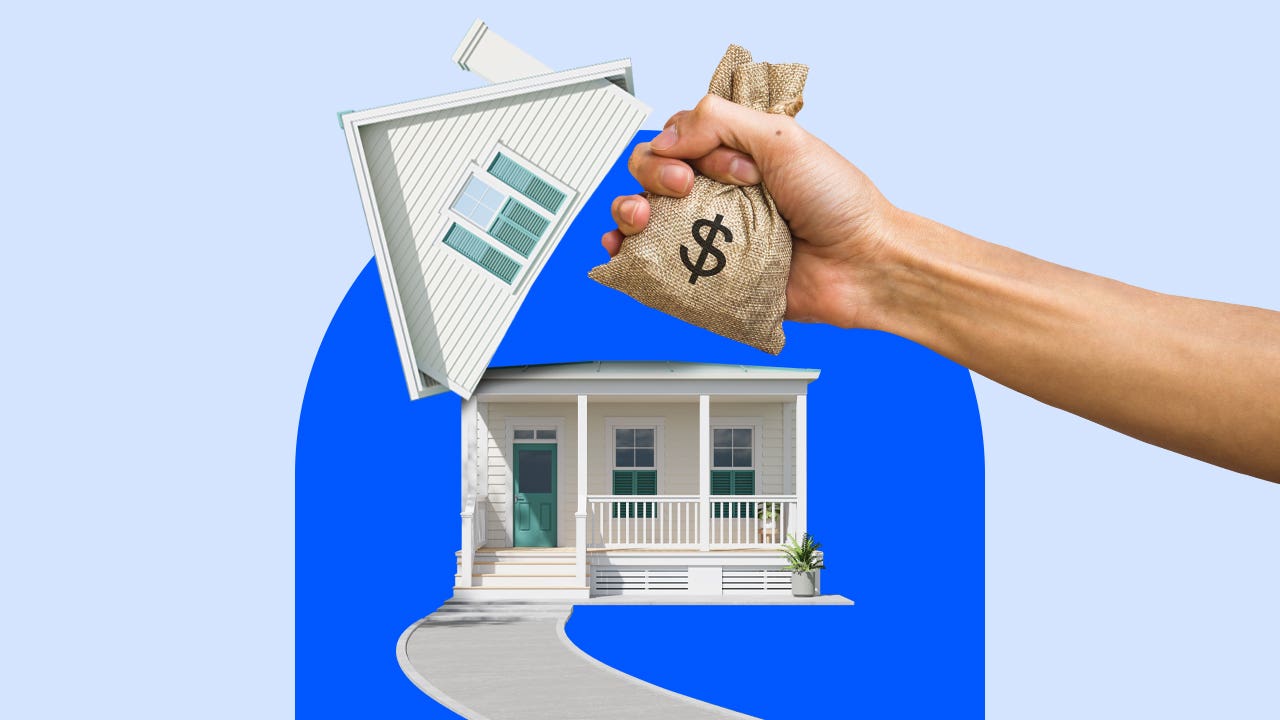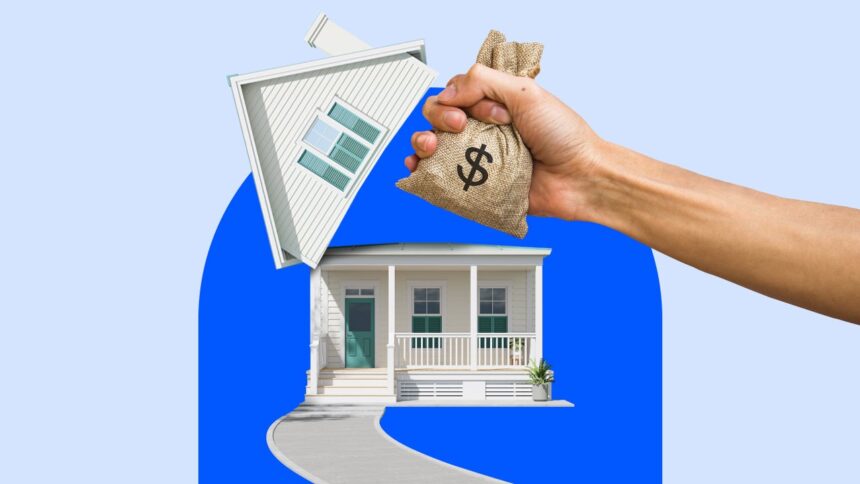
Images by GetTyimages. Illustrations by Hunter Newton/Bankrate
Saving money for a down payment in the home, especially if you are a first-time home buyer, can be difficult, but you may not need to save as much as you would expect. Here’s what you need to know about the average down payment for a first-time buyer’s home:
Average down payment at a first-time home buyer’s home
Many first-time home buyers mistakenly believe they have to lower 20% to qualify for a mortgage. Fortunately, it’s not.
According to the National Association of Realtors (NAR), the median down payment for first-time home buyers was 9% in 2024. For a $400,000 home, the 9% down payment totals $36,000.
Comparing that, it’s a repeat buyer whose typical down payment in 2024 was 23% or $92,000 for a $400,000 home. 32% of first-time buyers reported to NAR that saving down payments was the most difficult part of buying a home.
How much should I throw away at home as a first-time buyer?
The amount you need to concentrate on your down payment will depend on your financial situation, level of comfort and other factors.
If you can cut 20%, you could avoid mortgage insurance and potentially earn a low interest rate. This will save you more money than the loan term. But if that means ejecting your emergency funds, then you shouldn’t do this. Additionally, you will need money for closing costs and expenses such as furniture, moving, and home repairs after the move.
Experts also point out that it’s usually better to buy a home earlier than later. As savings rates may not match home prices growth, it may be worth paying just 3% down payment with a minimum down payment on a given first-time buyer program, even if it means paying temporarily for mortgage insurance. Once you have sufficient fairness (usually 20% of the home value), you can ask the servicer to remove your mortgage insurance.
If you want to know how a particular down payment affects your monthly mortgage costs, try using Bankrate’s mortgage calculator.
Benefits of creating a lower down payment
- Start building equity: You can own a home and start building your home equity faster than if you were waiting to save more cash.
- Put more money in your pocket: Moving to a home comes with costs such as repairs, modifications, and furniture. A lower down payment will allow you to maintain more money to cover these costs.
- Enter the house before prices go up further: It can take years to save a 20% down payment, and home prices and interest rates could rise even further.
The disadvantages of creating a lower down payment
- Mortgage insurance requirements: Many traditional loan programs require private mortgage insurance (PMI) for home buyers who cut below 20%. This will protect your lender if the mortgage is the default. According to Freddie Mac, PMIs can spend an additional fee of between $30 and $70 a month for every $100,000 you borrow.
- Less fairness: A small down payment means starting with less stocks in your home. If the value of the property drops, you could end up underwater on a mortgage. This means that you owe more than your home is worth it. It will take some time before you can begin borrowing against your stock interests.
- Higher Interest Rates: The more you borrow, the more dangerous your loan is to your lender. As a result, you will be charged a higher mortgage rate.
- Bigger monthly payments: Less advances means you have a large loan balance to pay off. This increases monthly payments.
How to lower your down payment as a first-time buyer
The lower the down payment, Except that. Here’s how to lower your down payment:
Low wage or unpaid mortgage
Some loan programs require a lower minimum down payment of homes for first-time buyers. Here are some of your options:
| Loan type | The lowest down payment | Lowest credit score | Maximum debt to income (DTI) ratio |
|---|---|---|---|
| Traditional loans | 3% | 620 | 45% |
| I had a loan | 3.5% | 580* | 50% |
| appear | 0% | Usually 620 | 41% |
| USDA loan | 0% | Usually 640 | 41% |
| *You can make it 500 with a 10% down payment |
Down payment support program for first-time home buyers
Many states and local governments offer down payment assistance programs to first-time home buyers, including:
- Grants: Grants are essentially a gift that will help you cover your down payment and closing costs. There is no need to pay it back.
- Allowed loans: The allowable loan is a type of mortgage that is usually at a zero percent interest rate. As the name suggests, you do not need to repay this loan unless you move, sell, or refinance within a certain period of time.
- Deferred Payment Loans: Like a generous loan, a deferred payment loan is the second mortgage that supports down payment funds with little or no interest charged. However, you will need to pay off your loan when you move, sell, or refinance.
To see if you are eligible for down payment assistance, ask your mortgage lender if they are eligible and eligible.
Other home buying costs to consider
When deciding how much you will focus on your down payment, you will also want to consider other upfront costs of homeownership. These include:
- Closure costs: Closure costs are costs associated with creating and processing a loan, such as origination, valuation, and title fees. The closure cost ranges from 2-5% of the home’s purchase price.
- Cash preparation: Lenders may not need to provide evidence of cash reserves, especially if they have a strong financial profile, but they may need to pay a mortgage for one to six months at the bank, if necessary. Even if the lender doesn’t need an appointment, it’s still wise to save in case he can’t pay the mortgage.










